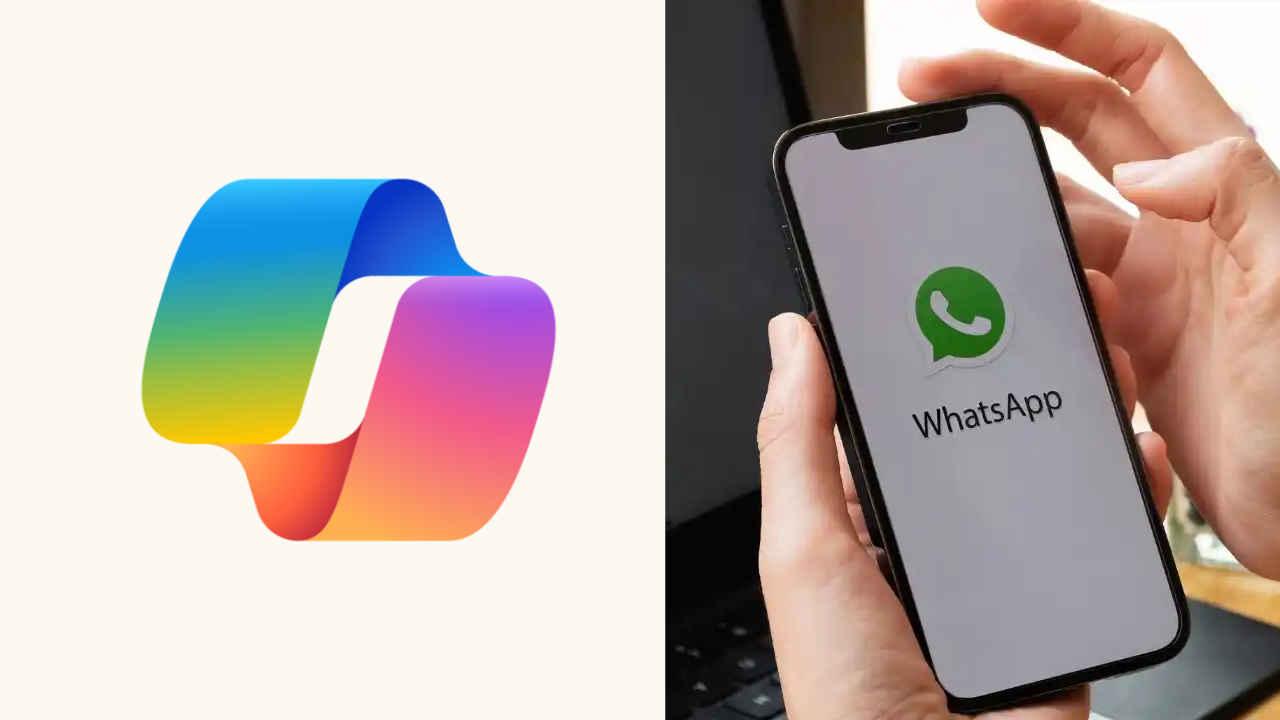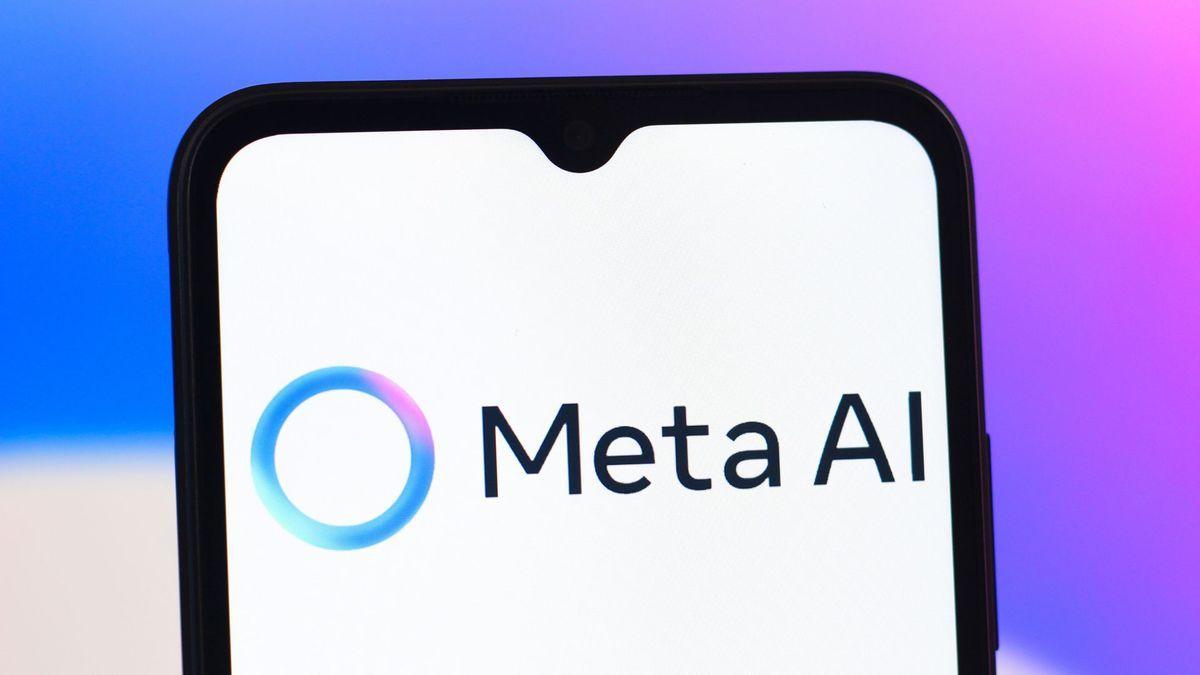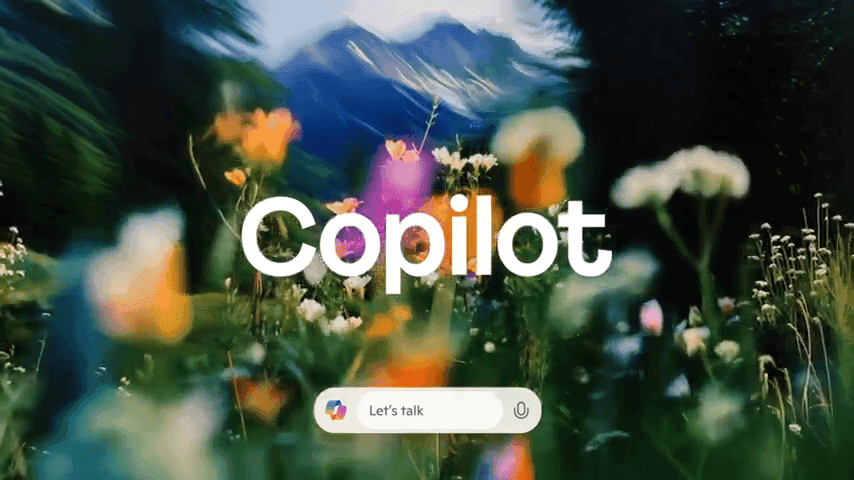Meta Forces AI Chatbots Off WhatsApp: ChatGPT and Copilot Exit by January 15
6 Sources
6 Sources
[1]
Microsoft's AI chatbot Copilot leaves WhatsApp on January 15
Microsoft's AI chatbot Copilot will no longer be available on WhatsApp after January 15, the company has shared. After that date, users on WhatsApp won't be able to chat with the AI unless they switch to Microsoft's own Copilot mobile apps or use the chatbot via the web. The company explained it's removing Copilot from the popular messaging app to comply with WhatsApp's revised platform policies, which were announced last month. At the time, the Meta-owned messenger said it would no longer support general-purpose AI chatbots from using its WhatsApp Business API to serve their customers. Instead, it wanted to reserve those resources for other types of businesses. This change doesn't mean that businesses can't use AI to serve their own customers. It does, however, put an end to WhatsApp being a channel for AI chatbot distribution, which will impact companies like Microsoft, OpenAI, Perplexity, and others. OpenAI had already announced its plan to wind down its WhatsApp integration in January. Unfortunately for Copilot users on WhatsApp, their chat history isn't being preserved when they make the move to Microsoft's platform because the access to the chatbot on WhatsApp was unauthenticated. Microsoft recommends users who need to retain their conversations for future reference export them using WhatsApp's built-in tools before the Jan. 15 deadline.
[2]
ChatGPT and Copilot are being booted out of WhatsApp
OpenAI's ChatGPT and Microsoft's Copilot are both leaving WhatsApp thanks to upcoming changes to the messaging app's terms of service that will prohibit using it to distribute AI chatbots not made by Meta. OpenAI announced its planned departure a few weeks ago, with Microsoft following it this week. Both companies attributed the departures to Meta's new terms of service for WhatsApp Business Solution, which come into effect on January 15th, 2026, and said the chatbots will remain accessible in WhatsApp until that date. ChatGPT users can link their accounts to WhatsApp to make sure their chat history carries over, though Copilot users won't have that option. WhatsApp announced the update to its terms in October, banning AI companies from using its business API as a distribution platform for chatbots. Other companies will still be permitted to use WhatsApp for customer service or support chatbots, with the terms only prohibiting cases where the AI itself is the product -- a simple way of stopping Meta's AI rivals using its own platform to reach customers. "The purpose of the WhatsApp Business API is to help businesses provide customer support and send relevant updates," an anonymous Meta spokesperson told TechCrunch at the time. "Our focus is on supporting the tens of thousands of businesses who are building these experiences on WhatsApp." The change means that other third-party AI chatbots, including Perplexity, are likely to announce departures from WhatsApp soon, leaving Meta AI the only option available from next January.
[3]
Meta is kicking ChatGPT and Copilot out of WhatsApp - and forcing everyone to use its unpopular AI chatbot instead
ChatGPT still leads the pack of the best AI tools, with rivals like Copilot not too far behind - and WhatsApp users have long been able to harness those chatbots within their messaging app. Unfortunately, Microsoft has now revealed that Copilot will be leaving WhatsApp due to a new policy from Meta, following a similar announcement from ChatGPT last month. Conveniently, that leaves you with a single choice of AI bot within WhatsApp: Meta's own Meta AI. And that's likely to come as a big disappointment considering how unpopular this chatbot has proven to be, given you can't remove it. Why exactly are ChatGPT and Copilot leaving WhatsApp? It all comes down to a change in the terms of service for WhatsApp Business Solution, which will start taking effect on January 15, 2026. When that happens, AI companies will be banned from using WhatsApp's API for their own chatbots, meaning ChatGPT, Copilot and others will have to withdraw their products from the app (although both chatbots will remain in WhatsApp until that date). Interestingly, the terms do not ban chatbots used for customer service or support, just those where the chatbot itself is the product - which is exactly what you get with ChatGPT and others. Back when the changes were first announced in October, a Meta spokesperson told TechCrunch that "The purpose of the WhatsApp Business API is to help businesses provide customer support and send relevant updates." An upshot of this, though, is that you'll soon be forced to use Meta AI if you want to talk to an AI chatbot within WhatsApp. And that might not prove to be a popular option considering how poorly received Meta AI has been since it was first added to WhatsApp. All it takes is a quick skim of Reddit to find countless threads decrying Meta AI and declaring it to be "the most useless and stupid thing I ever used." When it becomes the only AI chatbot you can use within WhatsApp, those complaints are only going to grow louder. While both ChatGPT and Copilot have announced they will be leaving WhatsApp when the ban comes into effect in January, other providers, such as Perplexity, have stayed silent. Yet barring a change of heart from Meta, they'll have to remove their own services come 2026, too. And with so much to gain from banning the competition, we can't see Meta deviating from this course any time soon - unless it's forced to.
[4]
Copilot exits WhatsApp on January 15 citing policy shift
Microsoft announced that its AI chatbot Copilot will cease availability on WhatsApp after January 15, 2025, in compliance with revised platform policies from the Meta-owned messaging service. The change requires users to access Copilot through Microsoft's mobile apps or web version instead. WhatsApp introduced these policy updates last month, explicitly prohibiting general-purpose AI chatbots from utilizing its Business API. This restriction targets services like Copilot that integrate to interact with end users. The policy aims to allocate API resources toward non-AI business operations, ensuring WhatsApp's infrastructure supports diverse commercial needs without favoring chatbot providers. While the new rules block third-party AI distribution via WhatsApp, they permit businesses to incorporate AI internally for customer service purposes. This distinction maintains flexibility for enterprise applications but closes the platform to external chatbot hosting. Consequently, WhatsApp ends its role as a distribution channel for such AI tools, affecting multiple companies beyond Microsoft. Among those impacted, OpenAI confirmed its intention to terminate WhatsApp integration during January 2025, aligning with the policy timeline. Similarly, Perplexity and other AI developers face the same constraints, necessitating alternative platforms for user engagement. These adjustments reflect WhatsApp's strategic focus on core messaging functions over AI extensions. Copilot users on WhatsApp encounter a specific challenge with this transition: chat histories will not transfer to Microsoft's platforms. The reason stems from the unauthenticated nature of WhatsApp access, which prevented secure data linkage. To address this, Microsoft advises exporting conversations promptly using WhatsApp's integrated export features before the January 15 deadline arrives.
[5]
After ChatGPT, Copilot AI Chatbot is Leaving WhatsApp Next Year
WhatsApp's policy also affects other AI platforms, including ChatGPT Microsoft announced on Tuesday that its Copilot artificial intelligence (AI) chatbot will soon be leaving WhatsApp. The move is said to be in compliance with the Meta-owned instant messaging company's revised business API policies. It prohibits providers and developers of AI chatbots from accessing or using the WhatsApp Business Solution. With this decision, Microsoft has become the second major AI provider to pull its AI chatbot from WhatsApp, following a similar move by OpenAI in October. Copilot to Leave WhatsApp Microsoft is sunsetting the Copilot chatbot on WhatsApp from January 15, 2026. After that date, the service will no longer function on the instant messaging platform, due to WhatsApp's policy changes coming into effect on the same date. It is working towards ensuring a smooth transition process for users, enabling them to retain their Copilot access on mobile, web, and PC, the Redmond-based tech giant said in a blog post. Microsoft says conversations with Copilot on WhatsApp will not be able to carry over to other Copilot surfaces, due to them being "unauthenticated". Users who still wish to retain them can use WhatsApp's export tools before the chatbot is discontinued from the messaging platform. Copilot will remain available on the web, at copilot.microsoft.com, and in the Copilot mobile app for iOS and Android devices. As per the company, the Copilot app and website provide the core features available on WhatsApp and also include additional capabilities that are not supported by the WhatsApp integration. Per WhatsApp's latest policies, providers and developers of AI or machine learning technologies, including but not limited to LLMs, generative AI platforms, and general-purpose AI assistants, are prohibited from accessing or using the WhatsApp Business solution, whether directly or indirectly. This applies to purposes of providing, delivering, offering, selling, or otherwise making available such technologies when such technologies are the primary (rather than incidental or ancillary) functionality being made available for use. Copilot is the second AI chatbot being discontinued from WhatsApp, following OpenAI's announcement last month. ChatGPT will also no longer be available on WhatsApp after January 15, 2025, in compliance with WhatsApp's updated policies. The company said that users can link their ChatGPT accounts with WhatsApp, and their past conversations will appear in the history section of the ChatGPT app.
[6]
Microsoft Copilot to leave WhatsApp on Jan 15, 2026: Here's why
Microsoft encourages users who want to save their chat history to export it using WhatsApp's built-in tools before the cutoff date. Microsoft has announced that its AI assistant, Copilot, will no longer be available on WhatsApp starting January 15, 2026. For users, this means that Copilot will continue working on WhatsApp only until January 15, 2026. After that date, the service will stop functioning. Microsoft encourages users who want to save their chat history to export it using WhatsApp's built-in tools before the cutoff date, as chat history cannot be transferred to other Copilot platforms. But why is this happening? Microsoft explains the change is due to "recent updates to WhatsApp's platform policies removing all LLM chatbots from the platform effective January 15th." Even though Copilot is leaving WhatsApp, it will still be available to use. Users can continue interacting with Copilot through: Copilot mobile app for iOS and Android, Copilot on the web at copilot.microsoft.com and Copilot on Windows. Also read: ChatGPT Voice now works right inside chats with live transcripts: Check details The Copilot app and website offer the same core features that were available on WhatsApp, along with additional functionalities. Some of the extra features include Copilot Voice, Vision, and Mico (a companion presence). Using Copilot on the app or web is mostly free, though some features may require a subscription or have usage limits. Also read: Perplexity launches its own AI shopping experience, but with a catch So, the departure of Copilot from WhatsApp is due to platform policy changes, not Microsoft ending support for its AI. Users who want to continue chatting with Copilot can do so through the official app, web, or Windows platforms without losing access to core features. Exporting chat history from WhatsApp before January 15, 2026, is the only way to keep past conversations.
Share
Share
Copy Link
Meta's revised WhatsApp Business API policies will force major AI chatbots including Microsoft's Copilot and OpenAI's ChatGPT to leave the platform by January 15, 2026, leaving only Meta AI as the available option for WhatsApp users.
Meta's Strategic Move Against AI Competition
Meta has implemented sweeping changes to its WhatsApp Business API policies that will effectively eliminate third-party AI chatbots from the platform by January 15, 2026. The policy revision specifically targets general-purpose AI assistants, forcing major players including Microsoft's Copilot and OpenAI's ChatGPT to cease operations on the world's most popular messaging platform
1
.
Source: Digit
The new terms prohibit "providers and developers of AI or machine learning technologies, including but not limited to LLMs, generative AI platforms, and general-purpose AI assistants" from accessing WhatsApp Business Solution when such technologies represent the primary functionality being offered
5
. This strategic decision positions Meta AI as the sole remaining chatbot option for WhatsApp's billions of users.Major AI Players Forced to Exit
Microsoft announced that Copilot will no longer function on WhatsApp after January 15, directing users to access the AI assistant through Microsoft's dedicated mobile apps or web platform instead
1
. The company emphasized that while core functionality remains available through alternative channels, the WhatsApp integration offered unique convenience for users already embedded in the messaging ecosystem.OpenAI had previously announced a similar timeline for ChatGPT's departure from WhatsApp, aligning with Meta's policy implementation date . Unlike Copilot users, ChatGPT subscribers can link their accounts to preserve conversation history during the transition, providing a smoother migration path to OpenAI's native platforms.
User Impact and Data Migration Challenges
The transition presents significant challenges for existing users, particularly those who have built extensive conversation histories with these AI assistants. Copilot users face the most difficult situation, as their chat histories cannot be transferred to Microsoft's platforms due to the unauthenticated nature of WhatsApp access
4
. Microsoft recommends users export their conversations using WhatsApp's built-in tools before the January deadline to preserve important interactions.The policy change affects not just individual users but also businesses that have integrated these AI tools into their WhatsApp-based customer service workflows. However, the new terms still permit companies to use AI for internal customer support purposes, maintaining some flexibility for enterprise applications while blocking external chatbot distribution
3
.Related Stories
Meta AI's Controversial Monopolization
The policy shift leaves Meta AI as the exclusive chatbot option within WhatsApp, a development that has generated significant user criticism. Reddit discussions and social media feedback consistently describe Meta AI as inferior to competitors, with users calling it "the most useless and stupid thing I ever used"
3
. The mandatory nature of Meta AI's presence in WhatsApp, combined with users' inability to remove it, has further amplified dissatisfaction.
Source: TechRadar
This strategic move effectively eliminates competition within Meta's messaging ecosystem while potentially driving users toward Meta's AI offerings. The timing coincides with increased competition in the AI assistant market, where ChatGPT and Copilot have established strong user bases and brand recognition that could threaten Meta's position in conversational AI.
References
Summarized by
Navi
[2]
[3]
[4]
Related Stories
Meta Bans Third-Party AI Chatbots from WhatsApp, Solidifying Its AI Strategy
19 Oct 2025•Technology

WhatsApp's Controversial Meta AI Integration Sparks Privacy Concerns and User Backlash
11 Apr 2025•Technology

EU charges Meta with antitrust violations over blocking rival AI chatbots from WhatsApp
09 Feb 2026•Policy and Regulation

Recent Highlights
1
Google Gemini 3.1 Pro doubles reasoning score, beats rivals in key AI benchmarks
Technology

2
Meta strikes up to $100 billion AI chips deal with AMD, could acquire 10% stake in chipmaker
Technology

3
Pentagon threatens Anthropic with supply chain risk label over AI safeguards for military use
Policy and Regulation





